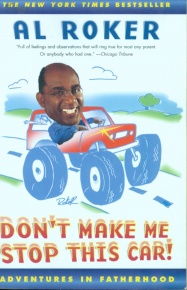
How to Make Bug Bites Stop Itching: A Comprehensive Guide
Dealing with bug bites can be quite an annoyance, especially when they start to itch. The discomfort can be quite distracting, and finding a way to alleviate the itching is a top priority. In this article, we will explore various methods to help you make bug bites stop itching, ensuring you can get back to your daily activities without the irritation.
Understanding Bug Bites

Bug bites are caused by various insects, such as mosquitoes, fleas, bed bugs, and ants. These bites can be itchy, red, and sometimes even painful. The itching is usually due to the insect’s saliva, which contains substances that trigger an immune response in humans, leading to inflammation and itching.
Immediate Relief

When you notice a bug bite, it’s essential to act quickly to minimize the itching. Here are some immediate relief measures you can take:
-
Wash the bite with soap and water to clean the area and prevent infection.
-
Apply a cold compress to the bite to reduce inflammation and numb the area temporarily.
-
Use over-the-counter antihistamines, such as diphenhydramine (Benadryl), to relieve itching and reduce inflammation.
Home Remedies

There are several home remedies that can help alleviate the itching and discomfort of bug bites. Here are some popular options:
-
Aloe Vera: Aloe vera has soothing properties that can help reduce inflammation and itching. Simply apply fresh aloe vera gel to the bite.
-
Tea Tree Oil: Tea tree oil has antibacterial and antifungal properties that can help prevent infection and reduce inflammation. Dilute a few drops in a carrier oil, such as coconut oil, and apply to the bite.
-
Baking Soda Paste: Mix baking soda with water to create a paste and apply it to the bite. The paste can help neutralize the acidic substances in the insect’s saliva and reduce itching.
-
Apple Cider Vinegar: Dilute apple cider vinegar with water and apply it to the bite. The vinegar can help neutralize the pH of the insect’s saliva and reduce itching.
Topical Treatments
There are several over-the-counter topical treatments available that can help alleviate the itching and discomfort of bug bites. Here are some popular options:
-
Hydrocortisone Cream: Hydrocortisone cream is a corticosteroid that can help reduce inflammation and itching. Apply it to the bite as directed on the label.
-
Calamine Lotion: Calamine lotion is a traditional remedy for bug bites and can help soothe the skin and reduce itching.
-
Anti-Itch Creams: There are various anti-itch creams available that contain ingredients such as menthol, camphor, and lidocaine to provide relief from itching.
Preventative Measures
Preventing bug bites is always better than dealing with them after the fact. Here are some tips to help you avoid bug bites:
-
Wear long-sleeved shirts and pants when spending time in areas where insects are prevalent.
-
Use insect repellents containing DEET, picaridin, or oil of lemon eucalyptus to deter insects.
-
Keep your home clean and free of clutter, as insects tend to thrive in dirty environments.
-
Seal gaps and cracks around doors and windows to prevent insects from entering your home.
When to Seek Medical Attention
In most cases, bug bites are harmless and can be treated at home. However, there are some situations where you should seek medical attention:
-
If the bite becomes extremely swollen, red, or hot to the touch, it may be infected.
-
If you develop a fever or other flu-like symptoms after a bug bite, it could be a sign of a more serious infection.
-
If you have an allergic reaction to bug bites, such as difficulty breathing, swelling of the throat, or h







